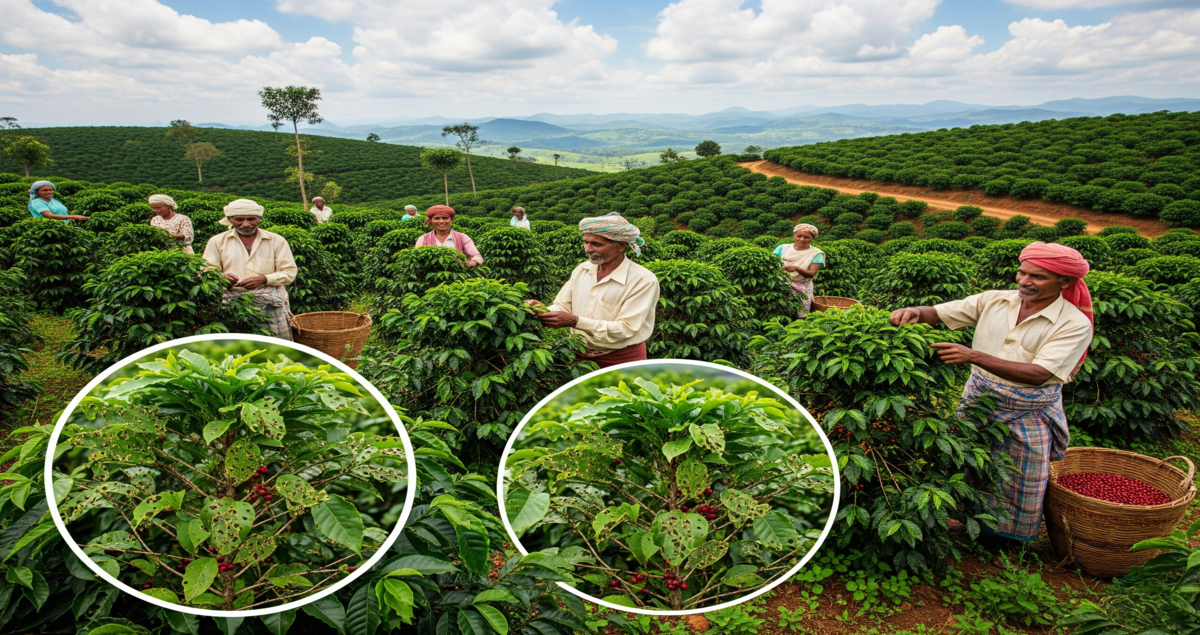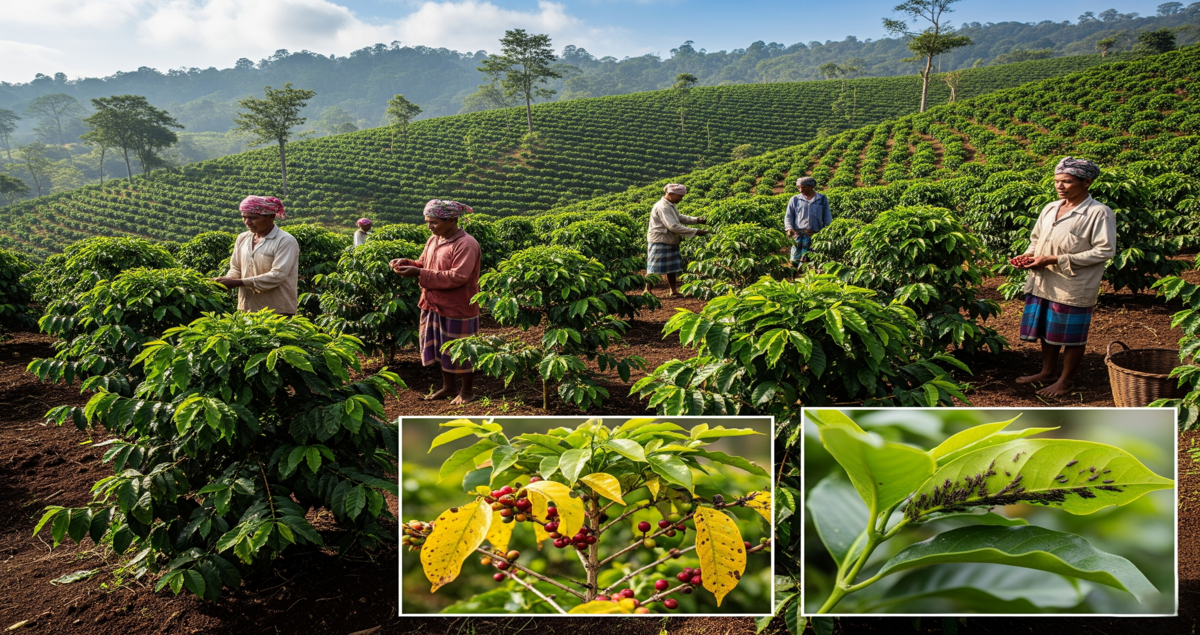Berry borer pest threatens Araku coffee plantations
Coffee has changed the lives of rural families in Alluri Sitarama Raju district, giving farmers a steady source of income and earning recognition worldwide. Chief Minister N. Chandrababu Naidu, who has taken on the role of brand ambassador for Araku Coffee, is working to promote it on the global stage.
At present, coffee is grown on 2.25 lakh acres in the district, producing about 18,000 tonnes a year. Nearly 1.5 lakh families depend on it for their livelihood. The trade is worth between Rs 150 crore and Rs 200 crore annually. The State government now plans to expand coffee plantations by another one lakh acres over the next eight years, with an investment of Rs 100 crore.
This progress is now under threat after the detection of the coffee berry borer pest in plantations in the Araku region. The pest, already common in Kerala, Tamil Nadu and Karnataka, has now spread to Alluri district. Farmers in those States have been able to control it with proper methods, but tribal farmers here are less aware of how to deal with such infestations.

Scientists from the Coffee Department confirmed the presence of the pest during inspections. A team led by Dr. Tentumon, Head of Entomology at the Central Coffee Research Station in Chikkamagaluru, Dr. M.S. Uma, Entomology Scientist, and Sunil Babu, Head of the Regional Coffee Research Station at R.O. Nagar, visited affected plantations and collected samples.
Based on their report, District Collector Dinesh Kumar instructed officials to take precautionary steps and spread awareness among farmers. Coffee Department teams have already started meetings in Paderu and Araku to guide growers on pest management.
“The berry borer bores into coffee beans and feeds on them, leaving waste inside that spoils the beans completely. Even when mixed with good beans, they affect the taste and reduce overall quality,” said Sunil Babu, Head of the Regional Coffee Research Institute, R.O. Nagar.
He warned that the pest spreads through seeds and gunny bags, which is why the import of coffee seeds from other States has been banned. He stressed that infested plantations must be identified quickly, and the affected crops destroyed to stop further spread.



